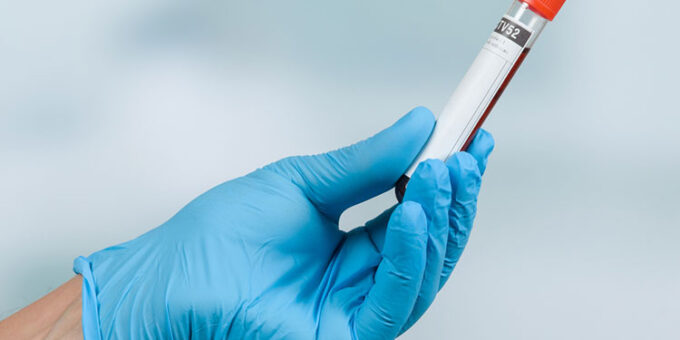
A Double Marker Test is generally prescribed to pregnant women during the first trimester. It is typically conducted to avoid any unforeseen complications that are likely to happen after childbirth. This screening test involves checking the blood levels of both pregnancy-related proteins like A (PAPP-A) and beta-human chorionic gonadotropin (free beta – hCG).
However, the window for undergoing this screening test is relatively small. If you are about to undergo the Double Marker Test, your healthcare provider will decide a suitable time for you. Nevertheless, the procedure is performed anytime between the gestational age of 11 and 14 weeks.
Normal Value for Double Marker Test
The normal value of this test is determined as – the presence of hCG in pregnant women is 25700-288000 mIU/ml. You should note that this valuation is applicable to women across all age groups. On the other hand, the normal Double Marker Test for PAPP – A is 1 MoM (multiples of median). Nevertheless, it is applicable to all age groups, including females.
How to Prepare for a Double Marker Test?
The Double Marker Test is a typical blood test that doesn’t require any prior preparation. However, you must inform your healthcare provider if you are consuming any medications before you can take the test.
What are the Uses of the Double Marker Test?
The Double Marker Tests are associated with a wide variety of uses. Some of them include the following:
- It is used for detecting Down Syndrome in the foetus.
- It is used to assess whether the unborn baby is at risk for any particular mental disorder.
- It efficiently helps detect Trisomy 21.T, which causes heart and mental disorders. Sometimes, a few health conditions that affect the vital organs can also be detected through this test.
- The Double Marker Test can efficiently help in detecting Trisomy 18. This condition typically results in severe congenital disabilities and mental retardation.
What is the Procedure for the Double Marker Test?
A Double Marker Test is typically conducted with a blood sample and an ultrasound. This test looks forward to two distinctive markers, Free Beta hCG and PAPP – A.
The human chorionic gonadotropin is a glycoprotein hormone exclusively produced by the placenta during pregnancy. If the test results determine a high level of Beta hCG, it comes with higher associated risks of Trisomy 18. It is also indicative of Down’s Syndrome.
On the other hand, PAPP is a crucial plasma protein. And a typically low level is clearly indicative of the risks associated with Down Syndrome. Besides, some of the most common test readings are signified with unique terms – screen positive, screen negative, and high risks.
What is the Cost of a Double Marker Test?
You will probably know that the double Marker Test costs vary due to several factors. It typically includes the factors of location, quality, and availability of the testing procedure. The main reason behind the fluctuating costs is that it’s available in select cities only. Besides, the average cost for the Double Marker test is quite expensive.
To Conclude
The Double Markers Test is a typically non-invasive blood test that helps determine the associated risks. This determinedly works as a routine test. But before you can undergo this test, make sure you follow the instructions provided by your doctor.
Read More health Blogs:

